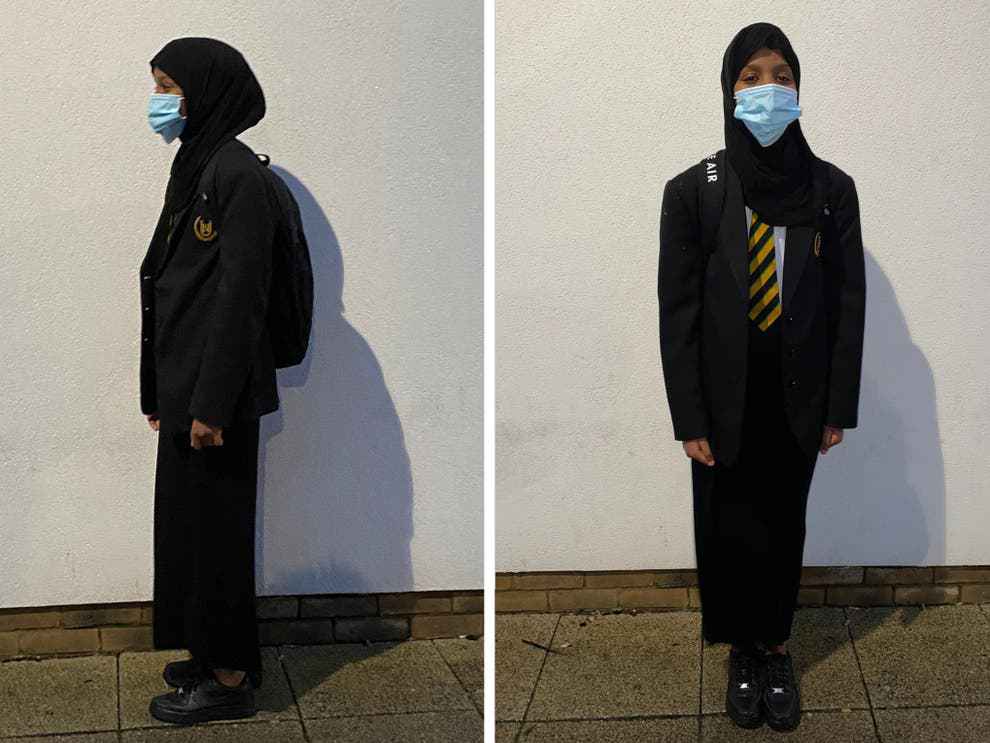Skirt Length Scandal

By Fakhriya M. Suleiman, MA Global Media and Postnational Communications
The parents of secondary school girl, Siham Hamud, have found themselves embroiled in a potential legal battle. Uxbridge Secondary School (UHS) is threatening the Hamud family with court action due to Siham’s skirt being ‘too long’ and against their uniform policy.
Hamud’s refusal to wear a shorter skirt resulted in her being repeatedly sent home in December 2020. In regards to this, Vogue UK questioned ‘who benefits when a 12-year-old young woman is sent home every day for weeks?’
Being sent home everyday in December yielded a month’s worth of ‘unauthorised absences’.
In a letter the family received, UHS stated the ‘unauthorised absences’ may result in ‘legal action being taken against the adults who have parental responsibility or day-to-day care of [their] child… [including] penalty notice or a summons to the magistrates court.’
‘The school is threatening to take legal action against me… [but] all Siham wants to do is to wear a skirt which is a few centimetres longer than her classmates.’
The Hamud family hail from Britain’s Muslim community. Idris Hamud, Siham’s father, said ‘the school is threatening to take legal action against me… [but] all Siham wants to do is to wear a skirt which is a few centimetres longer than her classmates. It’s her faith and her decision to make.’
According to The Guardian, both of Siham’s older sisters, Sumayyah and Ilham, were able to wear long skirts to UHS ‘without issue’ afore.
Ashfaque Chowdhury, chairman of the Association of Muslim Schools, anchors Siham’s case in the wider context of the UK not having ‘any comprehensive national guidelines on [such matters] from the Department for Education.’ In his opinion piece for iNews, Chowdhury coined the term ‘diversity blind spots’ to describe the phenomenon whereby Britain’s teachers are not equipped with knowledge of every faith tradition or cultural sensitivity. This results in mainstream schools being unable to accommodate Britain’s minorities. He went on to say that this is an issue not limited only to Britain’s Muslims, but also highlighted the nation’s black community as also being subject to experiencing exclusion for donning natural hairstyles.
13 January saw the Muslim Public Affairs Committee (MPAC), a ‘grass roots civil liberties pressure group’, launch an online campaign to garner attention to the Hamud family’s plight. In their online communiqué ‘demanding UHS respect [this] Muslim schoolgirl’s modest clothing’, MPAC charges UHS with contravening the UN Charter of Human Rights by disallowing Hamud her freedom of religious expression.
Further, MPAC cited UHS as setting a ‘precedent for wider discrimination’ in the UK, likening this incident to the ‘erosion of rights of Muslims seen in other European countries, such as France.’ While the UK does not have an official policy banning the headscarf in schools, individual institutions have the right to implement regulations which may, as seen with Hamud’s case, lead to students being marginalised because of their religious beliefs.
MPAC’s online bulletin closes by asking supporters to ‘ACT NOW’ and contact the school via twitter and email to remind them of their ‘duty to uphold [the] human rights’ of pupils, as well as reinforce the salience of not putting pupils in a position whereby they are made to choose between ‘their right to religion [or] their right to education.’
Siham herself lamented over not being able to see her friends and her school ‘not accepting [her] for [her] religion and that’s wrong.’ Still yet, she is hopeful that ‘they’ll change their rules so that girls like me can wear [long] skirts to school.’
Photo caption: 12-year old Siham Hamud photographed wearing ‘improper’ school uniform at the heart of potential litigation (Credit: South West News Service).



